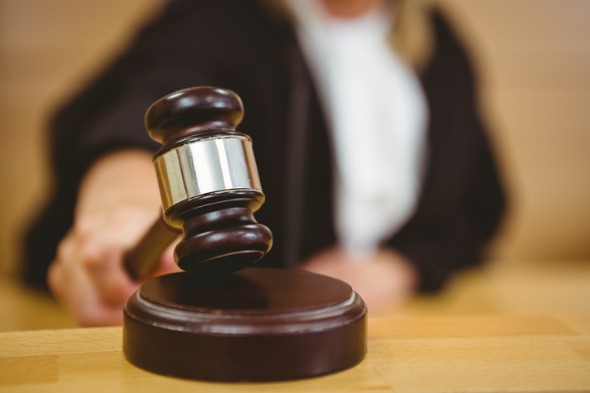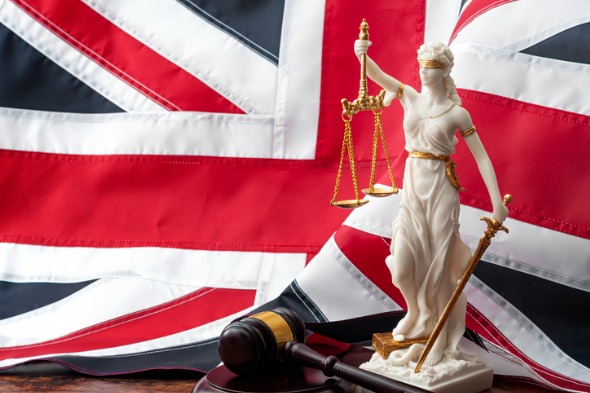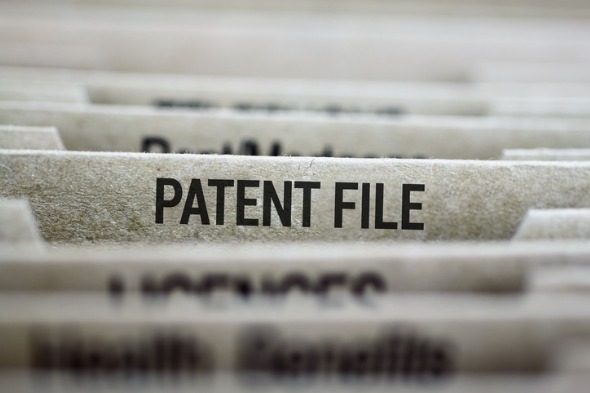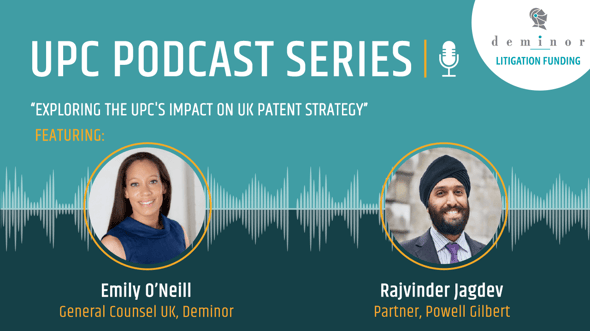In this podcast series, Emily O'Neill General Counsel UK and Global Intellectual Property lead for Deminor Litigation Funding, undertakes interviews with global professionals to understand the implications of the new Unified Patent Court (UPC).
Deminor welcomes you to join this conversation as we summarise the key elements of the conversations between Emily O'Neill and these experts, as captured in the podcast transcripts below.
What is the UPC?
The Unified Patent Court (UPC) is a new European court system designed to harmonise and simplify the patent dispute landscape in Europe.
The UPC was established in order to provide a unified patent enforcement system with jurisdiction over ratifying EU member states. Countries that are Member States of the European Patent Convention (EPC) but are not EU member states cannot join the Unitary Patent or Unified Patent Court. As a unified court with a multi-state jurisdiction, the UPC hopes to be faster, more efficient and more cost-effective in resolving patent disputes.
The UPC's structure is made up of a Court of First Instance that is divided into central, local and regional divisions. Its central divisions are located in Paris and Munich. The third seat of the central division was originally assigned to London. The Italian Foreign Office published a press release that an agreement has been reached with France and Germany to set up a branch of the Central Division in Milan. This agreement now needs to be approved by the other UPC contracting states during the next meeting of the Administrative Committee in June 2023. The press release states that the Milan court is in the process of being set up and will be operational within the next year. In the interim, the Presidium of the UPC decided, that initially, the Paris and Munich central division seats will share this caseload. Cases concerning human necessities are assigned to Paris and those involving chemistry and metallurgy to Munich for now.
The UPC’s Sunrise period launched on March 1st and allowed patentees to opt out of the exclusive jurisdiction of the new system to take effect from the court coming online on 1 June. Approximately 460,000 European patents and patent applications have been opted-out during Sunrise. Opt-outs are still possible now and at least during the 7-year transition period, unless proceedings are pending in the UPC, and will take effect once filed.
However, this is a new and untested forum, located in civil law jurisdictions but with elements of common law such as disclosure, cross-examination and adverse party costs. Notable jurisdictions such as the UK and Spain are not within the UPC - How will companies mitigate their commercial litigation risks in this environment?
Podcast Preface:
Deminor General Counsel UK, Emily O'Neill (EON), speaks with Raj Jagdev (RJ), Partner at Powell Gilbert, who has advised clients on a range of IP matters, particularly in the electronics, telecommunications and computer software sectors.
In this interview with Emily O’Neill, he provides his insight into the upcoming Unified Patent Court (UPC) and how it might impact the UK market.
Podcast Transcript:
EON - There has been a lot of discussion around how to opt-out, but who do you think will be litigating in the UPC in the first years of the Court?
RJ - The focus has been for a long time on the mechanics and the logistics of using the UPC system. And, of course, the reason it's been delayed is because people are struggling to log on to this and get their authentication cards. But the focus is now moving on to litigation strategy. At our firm, the focus is very much and has been for a while, on how the court will actually be used from day one and what will happen in the sunrise period.
In terms of opt-outs, it's an interesting one. It really depends on the client, and on the coverage that they already have in their EP portfolio. Tech clients, in particular, are quite focused on their coverage and really only validate in a couple of key jurisdictions. If they do validate more widely, they very quickly narrow down to just a few, Germany, the UK, Netherlands, Italy, and France.
Other clients FMCG, pharma, biotech clients, they'll have much broader coverage, validating and maintaining portfolios, patents, in all of these jurisdictions in some instances. So the decision to opt-out in part is informed by that.
For a client with just a handful of EP patents or national patents, in just a handful of countries, it perhaps doesn't make sense to be in the UPC. And so an opt-out in that scenario perhaps is an easier decision. Whereas with broader coverage, I think the issues become more complex. There are advantages to staying in the UPC system, you have centralized revocation and infringement actions, more infringement from the patentee perspective and, of course, the risk of revocation.
So, for more sophisticated clients who have large portfolios that are validated broadly across EP jurisdictions, there are a number of factors that come into play in deciding whether or not to opt-out. The validity, strength, of the patents, is a very important factor. If there is confidence in the validity of a particular patent, then that might be a reason to stay in the UPC and not opt-out and take advantage of centralized infringement mechanisms and remedies that will be available in the UPC.
Where there is doubt on the validity, where it hasn't been tested, or there hasn't been extensive work done on prior art searching, well, then it may be advisable to opt- out for the time being, because you can always opt back in provided you're not stopped from doing so. There are strategic things that a potential defendant or adverse party might engage in to block opting back in, and we can discuss those later.
Another key factor is really what it is that a patentee wants to do with its portfolio. If it's purely defensive, and the patentee is only operating actively in certain jurisdictions, well, then they may want to opt-out and not be in the UPC. I think, at the moment, it's fair to say that larger clients are erring on the side of caution and are minded to opt-out. But some are considering remaining in the system.
There are advantages also in terms of shaping the direction of the court and the operation of the UPC by staying in the system with a number of patents. And you can be quite fine-grained in how you do this, you can opt-out a parent, for example, but leave divisionals in. We're now at a stage in the launch of the UPC, where patents or applications are due to be granted. It's possible to make requests to the EPO to actually delay grants so that they can be granted post-launch of the UPC, and so you get a UP. And that might be an option for certain divisionals to just test the waters and see how the court will operate.
Of course, we're very excited about the imminent launch of the UPC. It's an attractive new forum. But we don't know how it's going to play out. We have a comprehensive set of rules and procedures. They look great on paper. But how they'll actually be implemented remains to be seen. And that's what we'll be watching very carefully in the short term.

EON - What aspects are organisations considering when selecting whether a patent should remain in the UPC or opt-out?
RJ - From the private practice side and the litigation side, the general view is that a patent that has gone through opposition and has survived in one form or another is battle-hardened and has had its validity tested.
Similarly, for a patent or a local designation that's gone through national proceedings in a reliable jurisdiction. For example, the UK, Germany, the Netherlands, or one of the other European courts, again validity has been tested, then that's a real plus.
So from a litigation perspective, those assets I would think would be attractive for leaving in the UPC, setting aside any other commercial reasons for opting-out. And, of course, cost is a very important factor. The on-the-ground reality is that opting-out of these processes all costs money. But certainly, it'll be a factor that patentees will be and, we'll be thinking about.
EON - Yeah, I think from the corporate side, there's budget, and there’s strategic considerations at play.
EON - When I was in-house and talking to the commercial leads, litigation wasn't really high on their list of priorities, selling products was. Anywhere where we could mitigate the litigation risk, we did. And specifically, regarding opposed patents, yes, I agree. They've had some testing, and they're going to be a little bit more battle-hardened. But there has already been third-party interest in those patents which may make them more likely to be targets for revocation. Then the litigation risk for an in-house person may be a little bit higher.
The main consideration for me was, how to mitigate risk. And where we had patents which had been opposed, it's more likely that a third party may try to have another go and essentially have those revoked, even if they hadn't tried on a piecemeal basis, which would then mean that there was a high risk that we would be drawn into litigation. Whereas if we opted-out for a period, it could maintain sort of a bit of the status quo. And then, if we wanted to enforce, we could go back in. It’s like when companies make an acquisition. Ongoing infringement in the company before acquisition may not be significant enough for a patentee to take action, but once the company is part of a bigger group with deeper pockets, it may make more commercial sense to litigate.
RJ - But that's fascinating. That gives a potential defendant a second bite of the cherry as well, of course it does. And the same is true currently outside of the UPC. You can always go and seek to revoke a patent or a national designation and roll out a positive decision. But I think the general prevailing view, that a patent that survives opposition will probably be harder to revoke. And I expect the UPC, initially, will be relatively deferential to the EPO in the way that the national courts in Europe currently are. There are varying degrees of deference, of course, but I would expect that to continue. There is a second bite there, and the risks of a revocation at the UPC is that the patent is revoked in all UPC territories. And so that does up the ante somewhat. I think, what counterbalances that, of course, is the fact that there are key jurisdictions, not in the UPC. And so, you still have your EP designations that are in the UK and Spain being the obvious examples. There are others. Turkey, for example, that also isn't in the UPC.
EON – How will litigation work between those in and out of the UPC?
RJ - You're quite right. There are a number of countries that signed up and haven't yet ratified. I think at the moment, on day one, the UPC will cover a territory with a combined population of 300 million, and that'll go up to 327 million once all the other countries that signed up have ratified. I'm not sure how the litigation will be divvied up, as it were between those in the system and those not yet in the system. But I think it's fair to say that jurisdictions like Ireland and Latvia that are signed up but are not yet ratified, don't see much in the way of regular patent litigation.
I think, more interesting will be how the UK and Spain interplay with UPC actions. And I can see there being real merit and advantage of having parallel actions in the UPC and the UK. Not just to play off the courts but also to help inform decision-making in the UPC. The UK, for example, has a disclosure system, longer trials and, extensive cross-examination. The output of the UK trial could still be quite useful in what is a very accelerated process in the UPC.

EON – Will there be a fair balance between the interests of claimants and defendants in the UPC?
RJ - The UPC is being marketed as a patentee/claimant-friendly jurisdiction. There are two aspects to it: Is a claimant friendly? - Yes. Does the claimant have an advantage in starting a UPC action? – Yes. In the same way that the claimant has in any action, they have all the time in the world, to put together their filing and then the clock starts ticking once they've issued, and then the pressure starts.
But I think the UPC, at least to start off with, will be quite patentee friendly, because the UPC wants to encourage patentees to use the court and the process. And that chimes with comments made by judges in the UPC - Grabinski spoke recently at a conference in London, where he promoted the benefits and the merits of the UPC to patentees. There are clear advantages: the population size makes it a compelling choice for patent holders that otherwise would litigate in the US, which is a popular forum certainly for NPE actions. And the combined population, the UPC, makes a compelling alternative to the US in terms of market size and GDP and the scope for damages and also the threat of injunctive relief.
"It's hard to take personalities and familiarity out of the UPC. I expect we will see a degree of German procedural influence in how the UPC operates in the short term. Part of that will depend on where they first see UPC action." - RJ
EON – Will the UPC have international influences, given its makeup and Judges?
RJ - I think there's certainly a strong German influence in the UPC and the rules of procedure and assessment, and that makes sense, given the sheer volume of patent litigation that takes place in Germany. For similar reasons, there is a strong UK influence on the rules – the expert testimony and relatively limited disclosure obligations from the UK system.
It's hard to take personalities and familiarity out of the UPC. I expect we will see a degree of German procedural influence in how the UPC operates in the short term. Part of that will depend on where they first see UPC action. Claimants can choose between central, local, and regional divisions, and we can expect to see it in quite a few of the initial cases in the German local divisions. So, we'll have German judges sitting on the panel, and no doubt that will influence the way case management decisions and actions are administered in the first instance.
I hope that over time, there will be a harmonised approach, but that will take some time. And it's not just the Germans of course, other local judges will bring local flavours into the UPC and their case management decisions and substantive decisions on infringement and validity.

EON – Who will be the advocates - Do you think we'll see many cases led by patent attorneys?
RJ – It’s a rare opportunity for patent attorneys to get involved in the UPC. They have the right to be the advocates and can be appointed representatives. The front-loaded nature of the UPC makes it quite amenable to the nature of prosecution work in preparing cases. And for similar reasons German attorneys will appreciate the risks and procedure of the UPC timeline.
Where things get more interesting is when you get to the oral procedure at the end, and that's where more seasoned litigators have an advantage. And it'll be interesting to see how the two play-off each other. We already have a view on this from Germany where we're used to this approach, but the UPC timeline is quite accelerated, even compared to Germany. The way that the process is currently carved up into the three phases: written, interim and oral procedures adds a slightly stricter sequence to a case than we see in Germany, where different divisions, different courts have their own approach to case management.
I think there's also a role for UK lawyers irrespective of the appointed representative status. The UPC is another forum for patent litigation, in addition to litigation in other courts in Europe, including states that are not part of the UPC. For example, UK, law firms have always played a role in coordinating complex multi-jurisdictional litigations, and I think we will continue to do so. I expect that we will play an active role in coordinating and assisting on UPC matters.
EON – Will UPC abstention and greater predictability attract more cases to the UK?
RJ – Absolutely, I think the UK will continue to be an important jurisdiction in patent litigation. It is a tried and tested jurisdiction. We're well respected, both in Europe and internationally. Our patent courts have a very good panel of technically qualified judges and have had for a while.
We have a system that the patentees are familiar with, particularly US clients with European patterns; the UK system is much closer to the US approach than it is to the civil law approach and in continental Europe, and what will be in the UPC. There are perhaps similarities in terms of the timeline between the UPC and the ITC, for example, in the US, but the UPC approach to litigating substantive issues is still very much more aligned with the UK common law approach.
The extensive cross-examination of experts of patents trial in the UK will last anywhere between two to three days to two weeks. And a key component of that is the cross-examination of experts. Contrast that to the UPC, where it's expected or anticipated that the oral procedure will be over in a day, clearly, there won’t be time to cross-examine to the same extent that one can in a UK trial or, in the US.
I think for clients, the UK will also be a very important jurisdiction, perhaps as a precursor to UPC action or in parallel with it, or in lockstep with it. Of course, disclosure is another great advantage of the UK system, where a patentee needs more information on infringement or on what a potential defendant is actually doing, then, the streamlined PPD regime in the UK, as compared to the US discovery might be quite beneficial.

EON – What role do you think the UPC will play in a multi-jurisdictional campaign?
RJ – Cost recovery is also a real benefit of the UK system. The UPC also has a cost recovery regime. It is a hybrid approach between the UK and German systems with a fixed fee component and then a variable component as well. But I think it's fair to say that the way cost shifting works in the UK is an incredibly useful tool in keeping parties honest and also efficient and litigation streamlined.
EON – Could UK action be launched earlier in a multi-jurisdictional campaign than the UPC in order to gather evidence to support a broader action?
RJ – That's certainly an option and one that might be explored. Of course, one can’t automatically use a PPD or disclosure in proceedings elsewhere, so that has to be factored in. Even today, outside the EPC, it is typical to see UK and German actions run in parallel. Although disclosure in the UK can't be used in Germany, it is a useful tool to keep parties honest to make sure that positions are consistent across jurisdictions. And I can see that being usefully deployed between the UK and the UPC.
There is a limited disclosure regime built into the UPC rules. We may see that being used as well, and it will be interesting to see to what extent that is used, and how disclosure is granted or ordered. How that interplays with the utility of extra-territorial disclosure mechanisms like the UK and PPDs and perhaps obtain the disclosure elsewhere, like the 1782s in the US, resulting in quite extensive disclosure counter to that, you then have to spend the resources in working through it.
EON – Do you think the UPC will be attractive for NPE cases?
RJ – There is a lot of interest in the UPC amongst NPEs. I was at a conference recently in California, which had lots of tech clients and NPEs in the technology space attending, and there was a great deal of interest in how litigation in the UPC might play out and the strategic options available.
I think the key driver is the market size. Until now, the US has been the most efficient place to enforce patent portfolios to get a damages award. And, of course, treble damages in the US for willful infringement is also a helpful incentive. The UPC will not have a punitive damages regime to speak of, it will be compensatory in nature, but, the ability to enforce a patent centrally in Europe, over a population of 300 million and a GDP of around 12 trillion, the potential for large damages will become quite real. It will be much cheaper than enforcing piecemeal in National Courts, which is the only way to do it today.
I think NPEs will look very carefully at the UPC, but given their familiarity with the US system, I think there will be some trepidation in jumping straight into what will be effectively a relatively alien court process. I think that is where, again, the UK as a bridging jurisdiction comes into play. UK lawyers can assist in helping bridge that knowledge gap and managing litigation in a system that we are more familiar with, given our experience of coordinating actions in Germany and elsewhere in Europe.
EON – Do you think the adverse party costs regime will make NPE be cautious to litigate in the UPC?
RJ – Given the NPE focus on the US, adverse party costs, cost-shifting, is a real unknown for NPEs that aren't familiar with Europe. It’s something that is often mentioned, by NPEs, in my discussions with them when discussing the UK as a forum. It's more of an unknown for them than it is a disincentive to litigation, and I think there just isn't an understanding of how that works or an appreciation that the cost of litigating in the UK today and the cost of litigating in the UPC will be considerably less than your typical US patent litigation. I think there is some work to be done in educating and helping potential court users on these issues and the nuances of the differences between the regimes.
The scope of coverage, at least in the short-term is going to be an important factor for NPEs to consider. It depends on the sector in which the NPEs operate, the tech sector, for example, where patents are validated only in a few key jurisdictions. And so, even if an NPE validated in Germany, the UK, France, and the Netherlands, is left in the system, the Dutch, German and French designations have UPC jurisdiction.
EON – Will the ability to obtain injunctions attract litigation to the UPC?
RJ – Absolutely, I think the real threat of an injunction, the fact that it will be, at least on the face of it, easier to obtain in the UPC than it is in the US, is a real driver for NPE interest in the UPC as a litigation forum. The general business model of NPEs is to use a threat of injunction to leverage a settlement.
No one wants to go into a complicated and protracted damages inquiry, so I think the injunction threat is a real plus. It's just inherent, as you quite rightly pointed out. In the US, it is very difficult to get an injunction in the district courts. The ICC is used as a forum to obtain an injunction, but again there are hurdles that the parties have to jump over to get that and not everyone is entitled to use the ICC process. And so yes, I see that being a real driver for that interest.
EON – Will the damages in the UPC be bifurcated from procedural liability?
RJ – Well, interestingly, the UPC allows for both. It allows for damages to be rolled into the substantive validity action and that it ought to be addressed at the end. But it also allows for the damages inquiry to be hived off to a separate trial or process, and there's also scope for it to be referred to arbitration.
I think practically, given the compressed timeline and the one-day trial, it just isn't realistic to have a comprehensive damages inquiry, at the same time or in the same process as the liability trial. And so I fully expect that the damages inquiries will be hived off to a second hearing or a second process.

EON – Will the cost-to-benefit ratio of UPC action make it more attractive?
RJ – In terms of costs of a typical UPC action, I think it'll be more in line with your typical UK action than a German action. For example, the procedure is a little more complex than what we see in Germany at present. And the cost shifting regime also needs to be factored in. We do that already in the UK in advising clients on the cost of action. And that's something that will need to be considered in the UPC, as well.
In terms of damages awards, the scope of protection is going to be very important in the short term and the transitional period. Where EPs with varying coverage will be effectively converted into UPs in the sense that they'll have unitary protection, but only in those countries which are validated. Of course, as we move into the system, and as new patents are granted with the unitary effects from the outset, they will have coverage in all the countries participating in the UPC system. And so, the analysis from a strategic perspective will change as we move through the process.
EON – Will the UPC be the biggest change ever in European Patent Litigation?
RJ – It's been long expected. We've been talking about the UPC for decades now. So there will be a sigh of relief when it finally starts.
I think the UPC is a seismic shift in patent litigation in Europe. It will certainly change the way court users, patentees and practitioners alike approach European patent litigation for generations to come.
EON – Is the UPC system solely to be for filing, or will case documents be publicly accessible? Documents?
RJ – I think there will be a component of the case management system that is publicly accessible without authentication credentials. You would be able to set up an account and access it like you can with Pacer in the US, for example, or EPOA registered practicing opposition filings.
In order to actually make filings in the UPC, representatives need to have strong authentication credentials. Which means for the moment, that they need to have a physical authentication security token, a smart card or some other authentication device, like a USB stick, that you plug into your computer and use in combination with a certificate installed on your computer to access the site.
Suffice to say, it is quite a complicated process. I think that's one of the main reasons why the launch of the UPC has been delayed to enable those IT issues to be somewhat streamlined. I hope that the security system might be somewhat simplified and brought up to date so that other authentication means can be used to get on. But certainly, that is a short-term issue that is currently vexing people interested in using the system.
RJ – How are funders like yourselves approaching the UPC?
EON – In summary, we're watching with interest. We've looked at a couple of opportunities. I think the UPC does give an opportunity to increase the damages available if the patent has been validated broadly enough.
My view goes back to some of the comments that you made around the different sectors and how broadly patents are validated in the EU is that quite a lot of the patent cases that we see are in the tech sector where maybe validation hasn't been as wide. Countries which are standard countries for validation are the UK and Spain, which are not part of the UPC system. So you're really looking still at Germany, Netherlands, France, Italy. Is that broad enough to increase damages significantly? Obviously, the Netherlands, as being a port city for a lot of imports, you're still going to have that coverage from a jurisdictional point of view, but would the UPC impact more broadly than a Dutch national action?
I think the question for us is whether the economics work. The cost of bringing a case is more than Germany, but probably about the same as the UK, plus an element of adverse party costs. That could mean an indemnity from the funder or insurance to cover the adverse party cost risk, and that has to be offset against the damages. If the damages are large enough, and it economically makes sense, then that's interesting.
Most importantly, for us is the merits, it's got to win. So how do we assess that in the court system, which is new, where the judges are applying different rules, maybe with a blend of flavours from their international colleagues? How are we going to map out our risk in terms of each of the cases? What is settlement going to look like in a really accelerated proceeding? Is there going to be a very low likelihood of settlement of UPC cases after the case is issued? These are the questions which we're grappling with at the moment, but I think it's an interesting jurisdiction.
Picking up on the interplay of the UPC and other jurisdictions in a multi-jurisdictional campaign. Again, I think the same thought process applies in how many jurisdictions now in the transitional period will have ratified the UPCA? How widely has that patent been validated, versus picking some individual jurisdictions? Then knowing the predictability of how cases will move through those jurisdictions and potentially how judges see different issues, also comes into play.
To conclude, we're watching with interest. I think like everyone else, we're keen for things to get going and to see how the first case is moved through.
UPC Podcast Series - Next steps and further information:
Thanks for joining Deminor's UPC Podcast Series as we deep dive into the ins and outs of the new Unified Patent Court.
Keep a look out for our upcoming conversations as Deminor General Counsel UK and Global Intellectual Property lead, Emily O'Neil, speaks with several more experts to get their insights on the UPC.
If you would like to connect with either Emily or Raj Jagdev on LinkedIn, please click on the links below:
Deminor, General Counsel UK and Global IP lead - Emily O'Neill
Powell Gilbert LLP, Partner - Raj Jagdev
- https://www.deminor.com/en/case-studies/co-funder-proposes-sharing-of-litigation-funding-risk-to-leverage-deminors-in-house-due-diligence-capability
- https://www.deminor.com/en/case-studies/financing-assertion-of-patents-protecting-manufacturing-processes
- https://www.deminor.com/en/case-studies/telecoms-patent-assertion-multi-jurisdictional-campaigns
- https://www.deminor.com/en/case-studies/canadian-innovative-start-up-preparing-for-a-david-v-goliath-litigation-funding-battle
- https://www.deminor.com/en/case-studies/whats-the-risk-assessing-the-risk-of-counter-assertion-by-the-defendant-in-patent-litigation
- https://www.deminor.com/en/case-studies/overstepping-the-mark-litigation-funding-trade-mark-infringement
- https://www.deminor.com/en/case-studies/lights-camera-action-recovering-damages-for-infringement-of-rights-in-a-short-film
- https://www.deminor.com/en/case-studies/recovering-damages-for-stolen-software-through-litigation-funding
- https://www.deminor.com/en/case-studies/funding-in-the-pharma-sector-/-investing-in-a-case-where-litigation-is-already-ongoing






